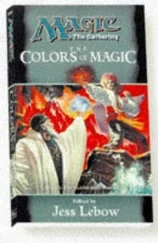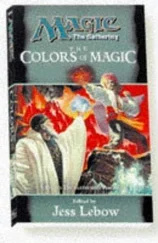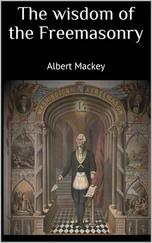nothing but rubble and dust; in other words, disposable homes. His most recent product had proved to be of a particularly tawdry modernism, for among the rubble and dust of its premature collapse lay the corpses of fifty or so human beings who had reached the end of their mediocre existences without the slightest advance notice. Although he was not especially superstitious, Suleyman never forgot as he drew up his unbeatable estimates that fate could intervene. Yet the suddenness of a catastrophe that did not bode well for his reputation puzzled him. What sort of fate was it, then, that behaved so hastily, without concern for the havoc wreaked by its untimely clumsiness? Couldn’t it have waited a suitable amount of time before perfidiously attacking a building whose paint was still wet, christened only three months earlier by a government minister? For Suleyman, this sort of fate was suspect; in fact, he suspected it of being linked to a conspiracy of enemies gravely offended by his success. He had always believed the popular adage that holds that wealth, like honey, attracts flies. In this instance, the flies were venomous, and they had already exuded their venom numerous times on the front pages of a newspaper that was independent and — worldwide rarity — incorruptible. Accused of embezzlement and fraud of every sort, Suleyman — like all his peers — would use his honor as his unassailable alibi, asserting that at the time the criminal acts had occurred, he was in the company of his honor. His bad faith went so far beyond the accepted norms of his profession that he aroused the admiration and jealousy of his more moderate competitors.
His obsessive search for the troublemaker who had ruined a real estate deal guaranteed to bring him fame and fortune did not in any way decrease Suleyman’s wrath against his accomplice, the minister’s brother — that cowardly and stupid individual who had dared send him a break-up letter filled with serious allegations, a missive that had now fallen into the hands of a stranger. And at this very moment that son of a louse Abdelrazak was holed up with his mistress, a wizened old belly dancer whom he kept royally with the money Suleyman paid him in exchange for more or less licit services. In truth, the transformation of one of his most beautiful creations into war rubble and those fifty supposedly innocent victims were nothing but minor incidents, no doubt unpleasant, but not to such an extent that his business would be harmed. Sooner or later every bloodbath is followed by another, even more spectacular one. Nothing could prevent a misfortune brought about by destiny, thought Suleyman, suddenly struck by wisdom. He was entitled to hope that this same destiny would soon cause a train to derail or a stadium to burn. (He preferred this latter option because of the throng of degenerates who frequented places of that sort.) And as a result, the human dregs burned to a crisp would number in the thousands, thereby making his own count of fifty dead ridiculously low by comparison.
Setting aside his shameless speculations about improbable, world-class fatal accidents, Suleyman came back to his major problem, the one and only quandary of the famous letter. However it were to occur, the dissemination of this letter with its ministerial letterhead would mark the end of a very lucrative collaboration with certain eminent civil servants whom Abdelrazak, using his kinship with a minister, had managed to lead off the straight and narrow path, down devious roads paved with precious stones. Suleyman swore to himself that once he had recovered the letter he would go fetch that pathetic son of a cross-eyed mother at his mistress’s home, pamper him, and perhaps even take him to a newly opened brothel where the oldest girl was no more than sixteen. That would be a change from his dancer with her sagging belly and would surely make him easier to manipulate. Suleyman had no choice, and he was prepared to stoop to anything to make Abdelrazak go back on his decision to end their collusion — even to tell him that he would make him his heir, which would be a dreadful lie: the fountain of his hatred for this scoundrel was nowhere near drying up. Suleyman was not one to forget that this individual had written him an impertinent, vulgar letter in a style worthy of a cabby, with the intention of dishonoring him. In his distress, however, he had to acknowledge that Abdelrazak was an essential cog in those corrupt networks without which business, for Suleyman in any case, was unimaginable. If he were to consent to work in real estate like an honest businessman, his company’s profits would fall to the level of those of a clay jug factory.
The stranger, in this case a young man who claimed to be a student — without specifying of what — had called to set up a meeting in a well-known café in the working-class El Huseini district. The café owed its reputation to its customers — a mix of intellectuals, philosopher-beggars, and simple actors in life with no apparent specialization. Suleyman had sat on its esteemed terrace for entire nights when he was still preparing his future exploits in the domain of preplanned, legal theft. The young man claimed to have found a letter addressed to Suleyman on the sidewalk of Rifaat Harb Street, and to have picked it up with the altruistic aim of returning it to its owner. He was referring to the letter that had been lost at the same time as Suleyman’s wallet — but no mention was made of this latter object — and promised to return it to him when they met. Obviously he was hoping to extract some money in exchange, and Suleyman was prepared to give it to him without argument. Still, there was something suspicious about this rendezvous; its bizarre and restrictive clauses would have caused the greatest mistrust even in a newborn. First of all, it was to take place at night, as if it were a meeting among conspirators; then there was this working-class district, a fertile ground for shady schemes; finally — and much more alarming — there was the presence of an additional person who, the so-called student claimed, was very eager to talk to him in a solely social way. Talk to him about what? One more witness in this matter and soon the entire city — which was waiting for just such an event to snicker and rejoice — would know absolutely everything about the miracle of his wealth. For what diabolical reason had the young man confided in this person? The question continued to plague Suleyman, like those riddles that remain unsolved for centuries.
Just as an ugly woman grows no uglier with age, the El Huseini district had not undergone further degradation over the years. Having parked his car far from where his meeting was to take place, Suleyman walked through a night illuminated by the lights of cafés and stalls and the torchères of peddlers more than by the municipal streetlamps lost at the ends of muddy alleyways. He felt as if he had left the neighborhood only yesterday, so clearly did he remember certain hovels with their cracked walls, and certain crevices that adorned the sidewalks, especially one in particular — still in operation — that had almost maimed him a very long time ago. Still, what he found surprising, new, and incomprehensible was the atmosphere of rejoicing that he sensed around him, a rejoicing that seemed to defy the ordinarily quaint and somber face of poverty. Yet it was not a holiday. All these people noisily calling to one another, jeering and laughing loudly as if simply being alive were enough to make them happy, deeply irritated him. He quickened his pace, not wanting to get mixed up in this orgy of shouts and joyous discussions — this booming cheerfulness was an offense to the delicate joys of the rich. A man in a barbershop, his bare feet slipped into sandals, was getting a shave from a young apprentice in swimming trunks. The sight of a poor wretch indulging in the luxurious pleasure of freshening up his face at this hour increased Suleyman’s irritation and inspired a variety of hypotheses about the fellow’s motivations. The man was getting a shave before going to meet a birdbrain of a mistress (she was obviously a birdbrain) in some local dive. Or, another conjecture, this one a bit on the macabre side: the man had been warned of his death the previous night and wanted to arrive attractive and clean at the gates of heaven. The absurd behavior of this esthete of the slums continued to nettle Suleyman until he was approached by a boy of about ten dressed in a brand-new saffron-colored robe who seemed very impatient to know the time.
Читать дальше












